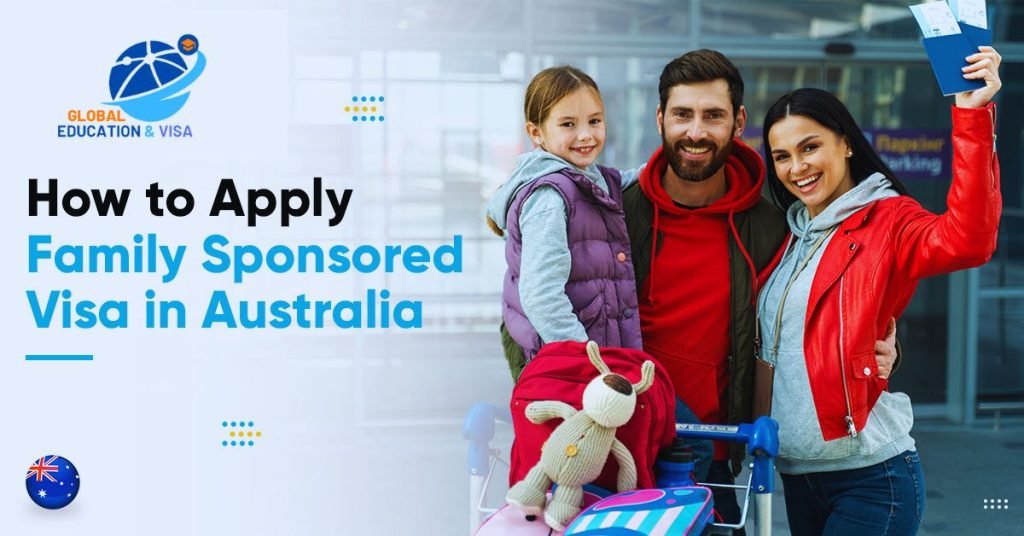Partner & Family Visas
Partner Visas
Partner Visas in Australia allow individuals to bring their partners to live with them in the country. These visas are available for both married and de facto partners, providing a pathway to reunite with loved ones and build a life together in Australia. There are several types of Partner Visas designed to cater to various relationship circumstances.
Types of Partner Visas:
Partner (Provisional) visa (subclass 309) and Partner (Migrant) visa (subclass 100):
Prospective Marriage visa (subclass 300):
Partner visa (subclass 820) and Partner visa (subclass 801):


Partner (Provisional) visa (subclass 309) and Partner (Migrant) visa (subclass 100)
These visas are for individuals in a genuine and ongoing relationship with an Australian citizen, permanent resident, or eligible New Zealand citizen. The Provisional visa is granted first, allowing temporary residence, followed by the Migrant visa for permanent residency.
Eligibility: These visas are for individuals in a genuine and ongoing relationship. The applicant must be sponsored by an eligible partner who is an Australian citizen, permanent resident, or eligible New Zealand citizen. Evidence of a committed relationship is required.
Prospective Marriage visa (subclass 300)
This visa is for individuals who are engaged to an Australian citizen, permanent resident, or eligible New Zealand citizen. It allows entry into Australia to marry the partner within nine months. After marriage, the applicant can apply for a Partner visa for permanent residency.
Eligibility: This visa is for individuals who are engaged to an Australian citizen, permanent resident, or eligible New Zealand citizen. It requires the intention to marry within nine months of visa grant and evidence of a genuine intention to marry.
Partner visa (subclass 820) and Partner visa (subclass 801)
These visas are for individuals in a genuine and ongoing married or de facto relationship with an Australian citizen, permanent resident, or eligible New Zealand citizen. The temporary subclass 820 visa is granted first, followed by the permanent subclass 801 visa.
Eligibility: These visas are for individuals in a genuine and ongoing married or de facto relationship. The applicant must be sponsored by an eligible partner who is an Australian citizen, permanent resident, or eligible New Zealand citizen. Evidence of a committed relationship is required.
Prospective Marriage visa (subclass 300)
The Prospective Marriage visa (subclass 300) is designed for individuals who are engaged to an Australian citizen, permanent resident, or eligible New Zealand citizen. This visa allows the applicant to enter Australia for the purpose of getting married to their partner within nine months of visa grant. Once married, the applicant can apply for a Partner visa to obtain permanent residency.
Eligibility: To be eligible for the Prospective Marriage visa, the applicant must meet the following criteria:
Intention to marry: The applicant must genuinely intend to marry their Australian citizen, permanent resident, or eligible New Zealand citizen partner within nine months of the visa grant.
Relationship evidence: The applicant must provide evidence of a genuine and committed relationship with their partner, including proof of meeting in person, intention to live together as spouses, and knowledge of each other’s personal circumstances.
Financial and character requirements: The applicant must meet the health and character requirements set by the Australian government. They should also have adequate financial resources to support themselves during their stay in Australia.
Sponsorship: The applicant must have a sponsor who is an Australian citizen, permanent resident, or eligible New Zealand citizen. The sponsor must be at least 18 years old and must provide a sponsorship application.
Age requirement: The applicant must be at least 18 years old at the time of visa application.
The Prospective Marriage visa provides a temporary stay in Australia to allow the applicant to marry their partner and transition to a permanent Partner visa. It offers a pathway to building a life together in Australia. At Global Education and Visa, we provide expert guidance and assistance in the Prospective Marriage visa application process. Our experienced team can help you navigate the requirements and ensure a smooth and successful visa application. Contact us today to discuss your eligibility and begin the process of obtaining a Prospective Marriage visa.
Parent Visas
Parent Visas are designed for individuals who have children living in Australia and wish to join them and live permanently in the country. These visas allow parents to reunite with their children and enjoy the benefits of living in Australia, such as access to healthcare, education, and a high standard of living.
Types of Parent Visas:
Contributory Parent (Temporary) visa (subclass 173) and Contributory Parent visa (subclass 143): These visas require a higher financial contribution and have shorter processing times compared to other parent visas. They provide temporary or permanent residency options, respectively.
Parent visa (subclass 103): This visa allows parents to migrate to Australia permanently. It has longer processing times but requires a lower financial contribution compared to contributory parent visas.
Aged Parent visa (subclass 804): This visa is for parents who are already in Australia and meet the age requirement for an aged pension.
Contributory Aged Parent (Temporary) visa (subclass 884) and Contributory Aged Parent visa (subclass 864): These visas are for parents who are already in Australia and meet the age requirement for an aged pension. They require a higher financial contribution and have shorter processing times.
Eligibility: The eligibility criteria for Parent Visas may vary depending on the specific subclass. Generally, the applicant must meet the following requirements:
Relationship: The applicant must be the parent of an Australian citizen, permanent resident, or eligible New Zealand citizen who is settled in Australia.
Balance of family test: The applicant must meet the “balance of family” test, which requires a certain number of children to be living in Australia or have more children living in Australia than any other country.
Financial requirements: Depending on the subclass, the applicant may need to meet specific financial criteria and make a financial contribution to the Australian government.
Health and character requirements: The applicant must meet the health and character requirements set by the Australian government.
Assurance of support: The applicant may be required to provide an assurance of support, which ensures they have financial support in case they require assistance from the Australian government.
Parent Visas provide an opportunity for parents to join their children and create a family life together in Australia. At Global Education and Visa, we understand the importance of family reunification and provide comprehensive assistance for Parent Visas. Our experienced team can guide you through the application process, including meeting the eligibility criteria and providing the necessary documentation. Contact us today to explore your options and begin the process of obtaining a Parent Visa for Australia.
Child Visas
Child Visas are designed for dependent children of Australian citizens, permanent residents, or eligible New Zealand citizens who want to join their parents in Australia. These visas allow children to live, study, and work in Australia permanently.
Types of Child Visas:
Child visa (subclass 101): This visa is for children outside of Australia who are dependent on an Australian citizen, permanent resident, or eligible New Zealand citizen parent.
Orphan Relative visa (subclass 117): This visa is for children who are orphaned, or their parents are unable to care for them, and they have an eligible relative living in Australia.
Adoption visa (subclass 102): This visa is for children who have been adopted or will be adopted by an Australian citizen, permanent resident, or eligible New Zealand citizen.
Dependent Child visa (subclass 445): This visa is for children of temporary visa holders in Australia. It allows them to remain in Australia until their parent’s visa expires.
Eligibility: The eligibility criteria for Child Visas may vary depending on the specific subclass. Generally, the child must meet the following requirements:
Relationship: The child must be the biological child, adopted child, or stepchild of an Australian citizen, permanent resident, or eligible New Zealand citizen.
Age: The age limits for child visas may vary. Generally, the child must be under 18 years old, but there are provisions for older children who are still dependent.
Health and character requirements: The child must meet the health and character requirements set by the Australian government.
Financial support: The parent or guardian sponsoring the child must demonstrate that they can provide adequate financial support for the child in Australia.
Child Visas offer an opportunity for children to be reunited with their parents in Australia and enjoy a fulfilling life in the country. At Global Education and Visa, we understand the importance of family unity and provide comprehensive assistance for Child Visas. Our experienced team can guide you through the application process, including meeting the eligibility criteria and providing the necessary documentation. Contact us today to explore your options and begin the process of obtaining a Child Visa for Australia.
Other Family Visas
Other Family Visas are designed for individuals who have eligible family members in Australia and wish to join them permanently. These visas provide an opportunity for family members to reunite and live together in Australia.
- Remaining Relative visa (subclass 115): This visa is for individuals who have no close relatives in any country except Australia. They must be sponsored by their eligible Australian relative.
- Aged Dependent Relative visa (subclass 114): This visa is for older individuals who are dependent on an Australian citizen, permanent resident, or eligible New Zealand citizen relative for financial support.
- Carer visa (subclass 116): This visa is for individuals who are willing and able to provide substantial and continuing care or assistance to an Australian relative with a long-term medical condition or permanent disability.


